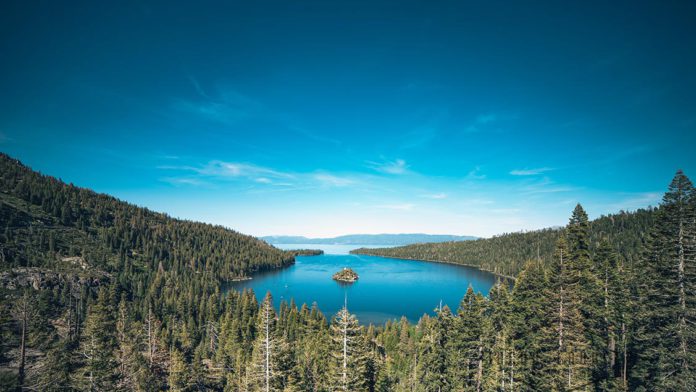WASHINGTON, D.C. – The Biden-Harris administration joined the National Fish and Wildlife Foundation (NFWF) and public-and private-sector partners in announcing $141.3 million in grants through the America the Beautiful Challenge (ATBC). The 74 new grants announced will support landscape-scale conservation projects across 46 states, three U.S. territories, and 21 tribal nations, and will generate at least $12 million in matching contributions for a total conservation impact of more than $153 million. Approximately 40 percent of 2023 grants and funding will support projects implemented by Indigenous communities, representing an unprecedented level of funding dedicated to tribally led projects for a single grant program at NFWF.
America the Beautiful, launched by the Biden administration in 2021, set the nation’s first-ever goal to conserve 30 percent of U.S. lands and waters by 2030. The 10-year, locally led and nationally scaled initiative lifts up efforts to conserve, connect, and restore the lands, waters, and wildlife upon which we all depend. In his first two years in office, President Biden invested more dollars in conservation than any other President in a two-year period, and he is on track to conserve more lands and waters than any President in history.
ATBC grants support projects that conserve, restore, and connect wildlife habitats and ecosystems while improving community resilience and access to nature, which also advance President Biden’s ambitious environmental justice goals. The competitive grant awards were made possible through President Biden’s Investing in America agenda, with funding from the Bipartisan Infrastructure Law, other federal conservation programs, and private sources. The White House launched the Challenge in 2022 as a partnership with the Departments of the Interior, Agriculture, and Defense, Native Americans in Philanthropy, and NFWF.
“Nature is essential to the health, well-being and prosperity of every community in America,” said Secretary of the Interior Deb Haaland. “Through the President’s Investing in America agenda, we have the historic opportunity to invest in locally led, collaborative efforts that can help combat the impacts of climate change, advance environmental justice, and safeguard the lands and waters we all love. I’m thrilled that in this year’s grant selections, 40 percent of the projects awarded will be implemented by tribal communities, putting Indigenous knowledge at the center of our conservation work.”
“The America the Beautiful Challenge is mobilizing locally led conservation and restoration projects across the country, while making it easier for communities to access investments from President Biden’s historic conservation agenda,” said White House Council on Environmental Quality Chair Brenda Mallory. “Today’s awards demonstrate how we are delivering on the President’s commitment to conserve our lands and waters for future generations and to better connect communities to nature so that everyone can enjoy a clean and safe environment and experience the wonder of the great outdoors.”
Secretary Haaland and Chair Mallory will visit projects in Arizona, Iowa and South Carolina this week to celebrate the awards, kicking off travel by other administration officials to showcase locally led conservation in the coming months.
These projects will enable states, tribal nations, U.S. territories, non-profit organizations, academic institutions, and other grantees to develop and implement multi-jurisdictional, high-priority restoration projects on both public and private lands. The program is intended to encourage the development and implementation of voluntary, diverse and comprehensive landscape-level projects, and prioritizes projects that align with President Biden’s Justice40 Initiative, which works to ensure the overall benefits of certain federal investments flow to disadvantaged communities that are marginalized, underserved, and overburdened by pollution.
The projects announced are expected to:
- Improve management of more than 13 million acres
- Improve or remove more than 115 miles of fence to benefit wildlife
- Manage more than 69,000 acres of fire-dependent habitat with prescribed burning
- Remove or improve more than 150 barriers to fish and aquatic organism passage
- Reconnect nearly 900 miles of stream or river
- Restore more than 650 acres of wetlands
- Open more than 6,600 acres for public access
The ATBC includes an emphasis on supporting tribal access to grant funding for restoration, conservation and capacity-building, and seeks projects that incorporate Indigenous Knowledge in planning and implementation. The number of proposals awarded to tribal nation applicants in 2023 far exceeded expectations and demonstrated high demand and clear need for the funding.














































